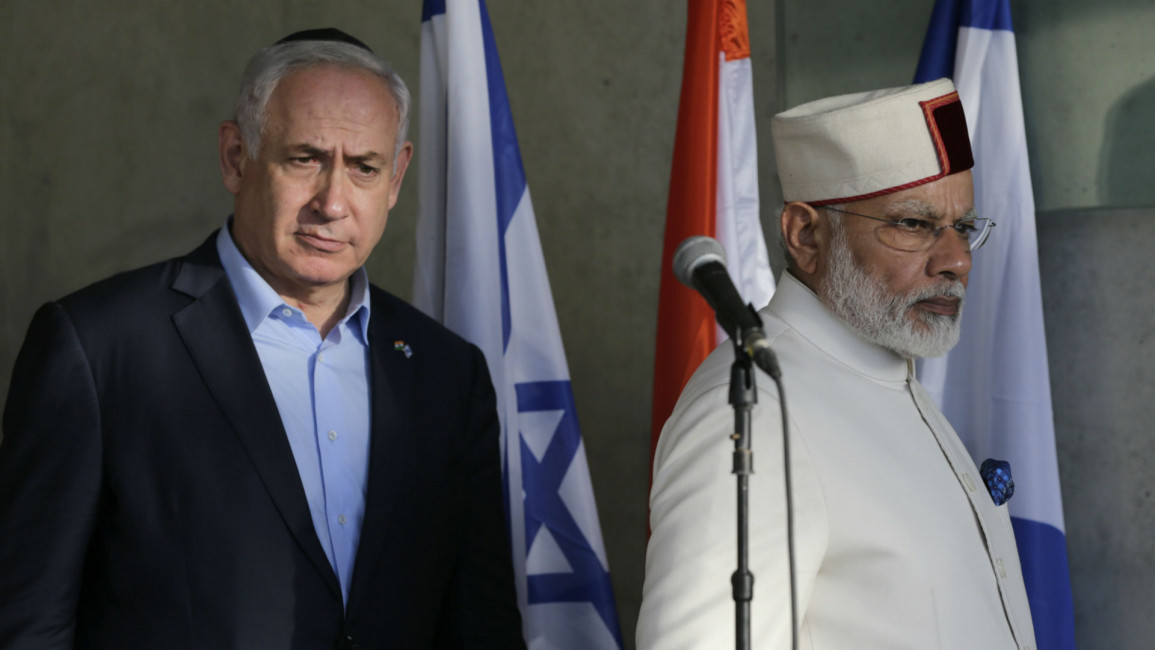Palestinians angered by Indian leader Modi's 'biased' Israel visit
Palestinian Deputy Foreign Minister Tasir Jaradat told Al Jazeera that the Indian leader's historic visit to Israel would be overshadowed by his decision not to meet President Mahmoud Abbas during the three-day tour.
"We expected him [Modi] to visit both Israel and Palestine," Jaradat told Al Jazeera.
"To play an important role between the two sides and to be able to spread the message of peace, one should visit both."
His decision goes against diplomatic protocol during visits to Israel, when world leaders generally also meet Palestinian officials in the occupied West Bank.
Despite US President Donald Trump's ambivalent attitude to the Palestinian Authority he still paid a visit to Bethlehem to meet officials during a tour of Israel earlier this year.
Modi's visit was the first by an Indian head of state with New Delhi traditionally sympathetic to the Palestinian cause under the left-wing Congress Party which has dominated government.
The new Hindu nationalist administration has taken a radically different approach and sought closer ties with Israel.
Tel Aviv has sold India hundreds of millions dollars in arms, including Rafael Spike anti-tank missiles and Barak 8 shipping defence systems.
Modi's visit will likely see India finalise a $400 million deal to purchase Heron armed drones.
The Indian leader also vowed to partner with Israel to fight "terrorism" during his meeting with Prime Minister Binyamin Netanyahu.
"Israel is among the leading nations in the field of innovation, water and agriculture. India has suffered first-hand the violence and hatred spread by terror, so has Israel," said Modi.
"[The] PM and I agreed to do much more together to protect our strategic interests and also cooperate to fight growing radicalisation.
Netanyahu said India and Israel were both "challenged by the forces of terror" and that the leaders had agreed to cooperate on the matter.
India remains fraught with sectarian and communal tensions, with battles continuing between Muslim and Hindu communities in areas such as West Bengal.
Palestinians will likely lament the loss of a once stalwart ally in their struggle against occupation.



